A controversial Kiwi company, Tross Publishing, has published three books on New Zealand history in the past year (File photo). Tom Lee / Stuff
By Gabrielle McCulloch, Stuff
Librarian Julia Smith wasn’t in her Northland school library when a controversial Kiwi publisher came knocking with a stack of New Zealand history books.
She wasn’t there to tell the teacher who bought them that the books contained misinformation – and before she got back, two books were already on her school shelves.
Smith was shocked. A historian had described the books as “racist propaganda”, and the publisher had a reputation for distorting history.
“I shared it with the head of history and Māori teachers who were both horrified,” Smith said. “There were even tears.”
The books in question were printed by Tross Publishing, a Kiwi company that has produced three books on New Zealand history in the past year. None of the authors appear to have relevant qualifications as historians.
One book in its collection claims that the deaths of defenceless Māori women and children in the 1864 British invasion of Rangiaowhia are a myth, and another argues that the invasion of Māori at Parihaka was “inevitable and necessary”.
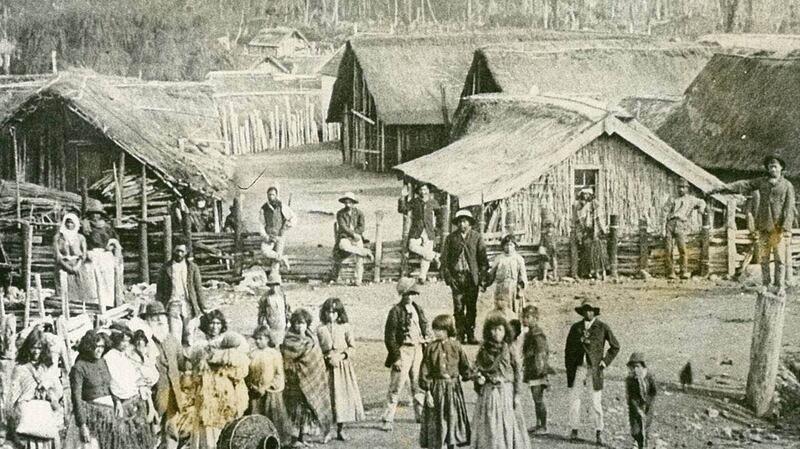
A view of Parihaka Pā in 1880s, about the time of the invasion. Photo supplied by Alexander Turnbull Library. Archive / Stuff
One recent publication, by Roger Childs, simply lists “Wikipedia” as a reference.
Historian Vincent O’Malley said Tross Publishing’s books were full of misinformation.
“Tross has established a reputation for producing works that I would describe as racist propaganda,” he said.
“These works aren’t going to provide any kind of accurate account of New Zealand history. They provide a totally distorted and misleading racist interpretation that bears little resemblance to what actually took place.”
The books put forward a curated narrative: “It’s a view where Māori [are portrayed as] a backward, barbaric people until they’re saved by the British Crown.”
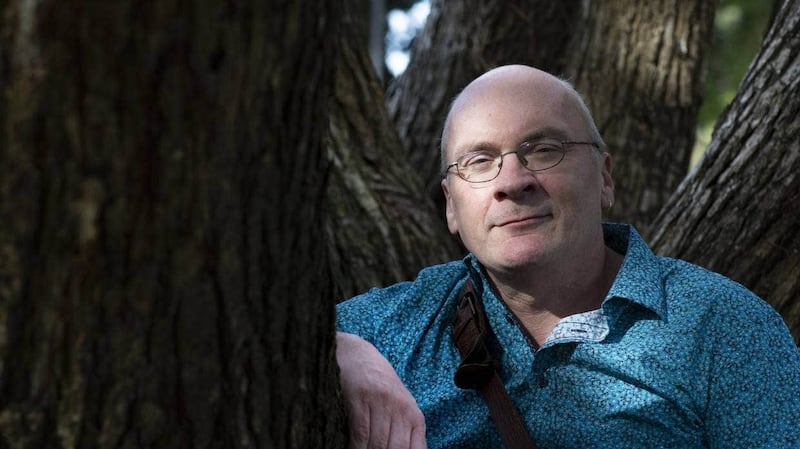
Historian Vincent O'Malley is an expert on the history of Māori, European settlers and colonisation. (File photo) Ross Giblin / Stuff
Writing credible historical works takes a “huge amount of research”, O’Malley said, adding that a review of Tross publications showed that their books didn’t meet that standard.
“If you look at the sources that these works rely on, it’s a very narrow range of sources. Essentially, they’re cherry-picking documents that fit their particular view of New Zealand history.”
Many of the books could appear legitimate at first glance, O’Malley said.
“It’s not always immediately obvious that these aren’t works of credible history. Some people are taken in by that,” he said.
Julia Smith, who is also the Northland representative for the School Library Association of New Zealand Aotearoa (SLANZA), agreed, and said the questionable history books had made their way into other school libraries beyond her own.
“When you’re busy and a box of books comes from a publisher, some teachers think, ‘we’ll just buy these now’ – without looking.
“Librarians and teachers are short on time. They’ve got so much to do, and often schools don’t have a school library or librarian. They just think, ‘oh it’s history’.”
Smith has since removed the books from her school library.
Manawatū primary school librarian and SLANZA president Sasha Eastwood said many students weren’t equipped to recognise misinformation.
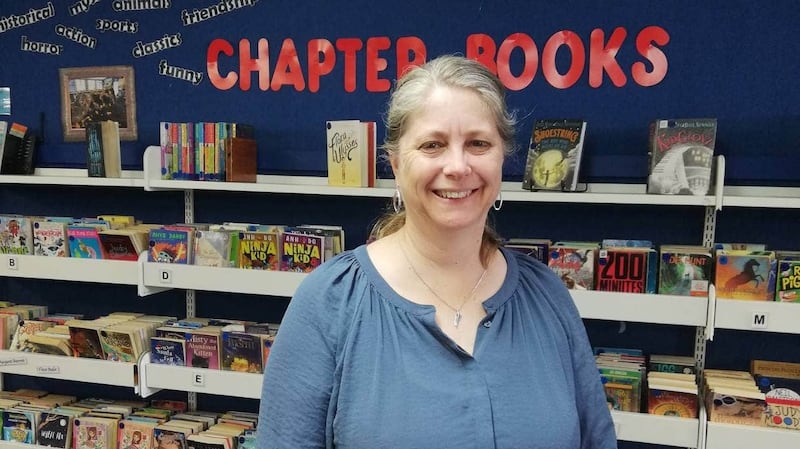
Sasha Eastwood is a school librarian and president of the School Library Association of New Zealand Aotearoa. Supplied / Stuff
“At my level, our students accept everything as the truth. It is imperative that only trustworthy resources are in our school libraries,” she said.
Eastwood said Tross Publishing was approaching schools and “preying on the possible naivety” of school staff and librarians.
“It is frightening,” she said. “It’s very biased material. I think we have to be very careful about allowing this stuff in schools without a disclaimer.”
“There is no place for misinformation and disinformation in our school libraries.”
At the start of 2023, New Zealand history became compulsory for all students up to year 10.
Schools are expected to teach about Te Tiriti o Waitangi, colonialism across the Pacific, and the ongoing development of Aotearoa’s diverse national identity through immigration.
The curriculum also requires that schools teach history from hapū and iwi in their regions and investigate the stories of other cultures that have shaped local communities.
Many primary schools have been scrambling for New Zealand history resources, Eastwood said.
“People are not prepared. We are in desperate need of good-quality, age-appropriate resources to surround our students and teachers with,” she said.
Eastwood is concerned that misinformation may fill the void.
“This has created a huge gap where some people see an opportunity to be sharing their biased point of view. As educators we can’t enter this space with a naive perception that everything that has been published is okay.”
Ellen MacGregor-Reid, leader at the Ministry of Education’s Curriculum Centre, said that the ministry had created a range of history resources for students of all ages.
“We would expect teachers to critically reflect on the suitability of any externally-sourced resources that they are considering using,” she said.
Damon Ritai (Ngāti Te Whiti), regional coordinator for Māori Achieving Success as Māori (MASAM), said the new history programme was critical to setting the record straight.
“Our history has been swept under the carpet,” he said.
“Parihaka is a classic example. I’ve been to too many schools around New Zealand where when I ask, ‘what do you know about Parihaka?’ [And] no one can tell me.
“That in itself is a slight on our history. We never taught it.”
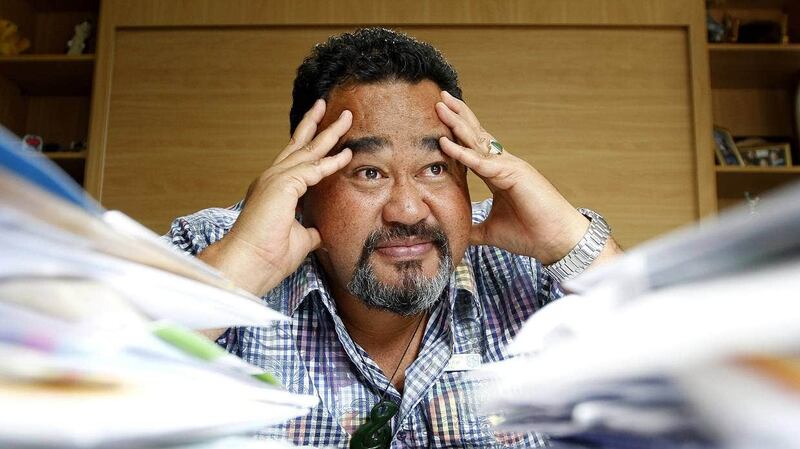
Former Frankley School principal Damon Ritai took up a role with Māori Achieving Success as Māori in 2018. Charlotte Curd / Stuff
Ritai has been encouraging schools to connect with their local hapū and iwi.
“It’s about making sure that schools are authentically building a relationship. It’s like if I can knock on your door saying, ‘can I have all your family stories?’
“The only way to do it is to support marae, hapū and iwi to tell their narratives,” he said.
However, Ritai cautioned it was important that teachers and parents were alert for misinformation when teaching history.
A Tross Publishing spokesperson, who refused to provide their name, called questions for this article an “unfounded attack” and claimed the company was being targeted because it recently “exposed the dangers of co-governance”.
None of Stuff’s correspondence with Tross mentioned co-governance and the topic was not raised by any of those interviewed.
"All Tross books are accurate and are based on extensive research by our writers, several of whom are PhDs,” the spokesperson said.
Two of the authors on the Tross website are referred to as doctors: John Robinson and Kelvin Duncan.
Duncan, a zoologist who previously worked at Canterbury University, has written one book for the company denying the scientifically-proven impact of humans on climate change.
Robinson has written 13 books for Tross, six of which are on New Zealand history. Robinson’s qualifications are in physics and maths.
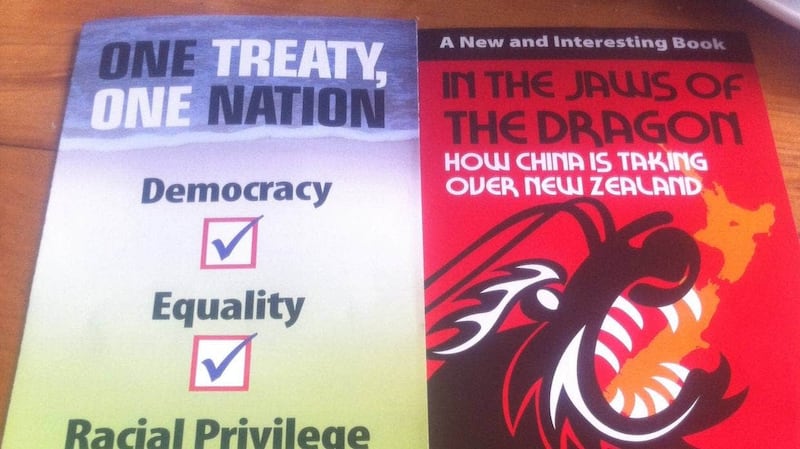
These Tross-published pamphlets were left in Wellington letterboxes in 2017. Supplied / Stuff
The Tross spokesperson said the company had received “no complaint of inaccuracy”, despite facing public criticism for publishing misinformation.
“If there is anything in any of our books that is inaccurate, it should be brought to our attention and we would correct it,” they said.
Meanwhile, Julia Smith said it was important that everyone – librarians, teachers, students and parents – was armed with the ability to spot misinformation.
“There’s so much information out there,” she said. “We have to show how to find good trustworthy sources and how to be confident in their searching.
“That’s very, very important.”
CORRECTION: An earlier version of this story incorrectly referred to a massacre at Parihaka. It was an invasion. Amended 1:50pm on Sunday, July 2, 2023.

